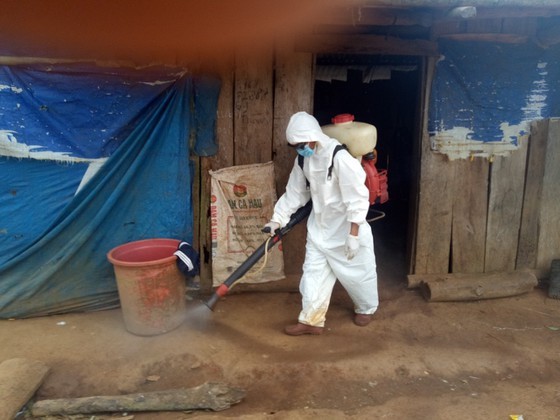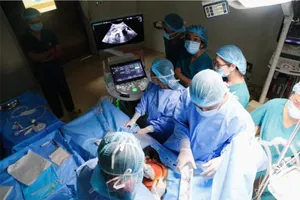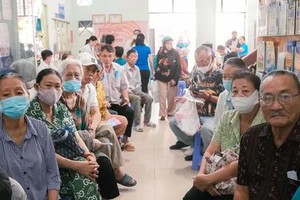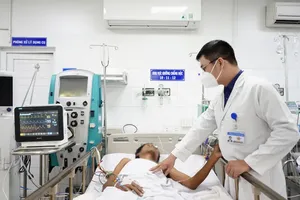
After the outbreak of diphtheria has been reported to the Ministry of Health, the Department of Preventive Medicine has urged the Institute of Hygiene and Epidemiology in the Highland region to send a group of medical workers to help Dak Nong in implementing preventive measures.
Meantime, the Military Hospital 175 yesterday announced the man with diphtheria, the first case in Ho Chi Minh City, no longer suffers fever, sore throat and swollen glands in his neck. The man took antibiotics to help kill bacteria in the body.
Forty-two medical workers have had close contact with him also took medication while his classmates and his colleagues tested negative for diphtheria.
Also in yesterday, the Tropical Disease Hospital said that it admitted a child patient with diphtheria with heart complication transferred from the General Hospital in Dak Nong Province on June 25.
Previously, the 13 year old child had been taken to the General Hospital in the Highland region while he was suffering fever, coughing, sore throat, breathing problem and serous contagiousness. His parents announced that he had not been vaccinated against diphtheria. He was put in intensive care unit in the hospital in HCMC.
The Tropical Disease Hospital has sent its medical experts to the General Hospital in the Highland region in treating diphtheria patients especially those with acute diphtheria in the outbreak.
Head of the Department of Preventive Medicine Dr. Dang Quang Tan said that from the beginning of June till now, four cases of diphtheria have been recorded in Dak Sor Commune and eight in Quang Hoa and Dak R’mang communes in Dak Nong and one of them in Quang Hoa Commune succumbed to the disease. These localities have low vaccination ratio ( from 48 percent to 52 percent).
Along with providing appropriate treatment to patients, medical workers took samples for testing to early detect and isolate all infection cases. All people who had close contact with infection cases had to take drug. Disinfectants were sprayed in the areas where outbreak of diphtheria occurred and famileis with children.
Simultaneously, local administration and the health sector increased dissemination of information of the disease in each household and in the residential quarters to raise people’s awareness of preventive measures.
A leader of the Department of Preventive Medicine said that no more infection case of diphtheria is recorded; however, the possibility of reoccurrence if still high because diphtheria bacteria usually spread from person to person through respiratory droplets, like from coughing or sneezing.
To prevent the disease spreading, medical experts advised people to take children to local infirmaries for vaccination against the disease, regularly wash their hand and cover their mouth when coughing and sneezing
When anyone has symptoms of diphtheria, they should go to hospitals for timely treatment and isolation.
























